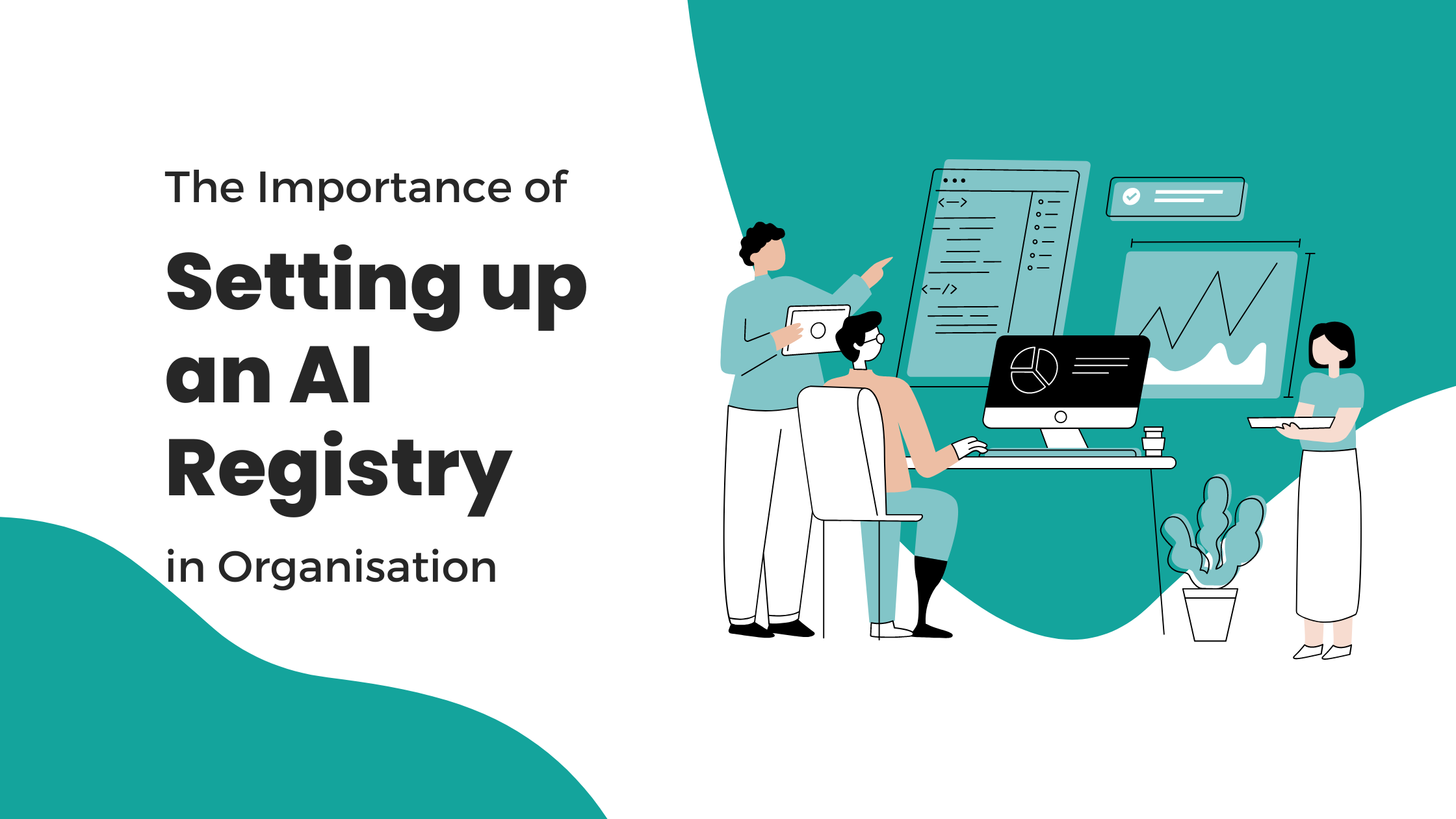In the dynamic landscape of Artificial Intelligence (AI), responsible implementation is paramount. This is where the AI Registry emerges as a crucial tool, safeguarding your organization’s data and guiding its AI journey. Imagine a centralized repository, a single source of truth for all AI initiatives. This is the AI Registry, meticulously documenting use cases, algorithms, compliance requirements, and security measures. But why is it so critical? Let’s delve deeper into how the AI Registry empowers your data teams:
1. Comprehensive Documentation: No More Information Silos
Imagine a library with scattered books and fading labels – that’s what your AI efforts could resemble without a registry. Each use case deserves clear documentation – its purpose, data sources, expected outcomes, and performance metrics. The registry ensures this, fostering transparency and collaboration across teams. No more scrambling for information or reinventing the wheel.
2. Compliance & Regulation: Navigating the Evolving Landscape
The ever-changing regulatory landscape surrounding AI can be a minefield. The registry simplifies this by tracking relevant compliance requirements for each use case. Think of it as your roadmap to ethical and responsible AI practices. Teams can proactively address potential issues and ensure they’re operating within legal and regulatory boundaries.
3. Security & Risk Management: Building a Fortress Around Your Data
AI systems handle sensitive data, making robust security paramount. The registry serves as a central hub for documenting implemented security controls, from data encryption to access restrictions. This proactive approach mitigates risks and fosters trust in AI deployments. Treat the registry as your security shield, protecting sensitive data and ensuring its responsible use.
4. Collaboration & Communication: Breaking Down Silos and Fostering Synergy
Data scientists, engineers, and business leaders often operate in silos. The registry bridges this gap by providing a shared platform for information exchange and collaboration. Think of it as a virtual meeting space, where teams can discuss use cases, share insights, and make informed decisions together. Communication becomes seamless, fostering synergy and driving innovation.
5. Performance Tracking & Evaluation: Measuring Success Beyond Hype
Measuring the success of your AI initiatives is crucial. The registry facilitates this by storing key performance indicators (KPIs) for each use case. Imagine having a dashboard at your fingertips, displaying the impact and value generated by each AI project. This data-driven approach allows teams to optimize their efforts and maximize their impact.
Beyond these core benefits, the AI Registry offers additional advantages:
- Identifying High-Risk Use Cases: The registry highlights projects requiring additional scrutiny and oversight based on their potential impact or compliance concerns. Think of it as a risk assessment tool, helping you prioritize resources and mitigate potential issues proactively.
- Facilitating Knowledge Transfer: Institutionalized documentation ensures valuable knowledge is preserved, even when team members change. Imagine a legacy of learnings passed on seamlessly, promoting continuity and growth.
- Supporting Future Audits and Investigations: Having a comprehensive record of AI initiatives simplifies compliance audits and investigations, saving time and resources. Imagine having all the answers readily available, building trust with stakeholders and demonstrating responsible AI practices.
Conclusion: Embrace the AI Registry, Unlock the Full Potential
In an era where AI is rapidly transforming industries, the AI Registry is not just a tool; it’s a strategic imperative. By empowering data teams with comprehensive documentation, robust compliance management, and improved collaboration, it paves the way for ethical, responsible, and successful AI deployments. So, don’t let your AI journey become a library of confusion. Embrace the AI Registry and unlock the full potential of this transformative technology. Remember, responsible AI is not just an option – it’s the foundation for sustainable success in the data-driven age.
Additionally, consider including:
- Specific examples of use cases across different industries.
- Real-world case studies of organizations successfully utilizing an AI Registry.
- Challenges to be aware of when implementing an AI Registry.
- Best practices for managing and maintaining an AI Registry.
- A call to action, encouraging organizations to adopt the AI Registry.
By incorporating these suggestions, you can create a compelling and informative blog that truly highlights the importance of the AI Registry in today’s data-driven world.








